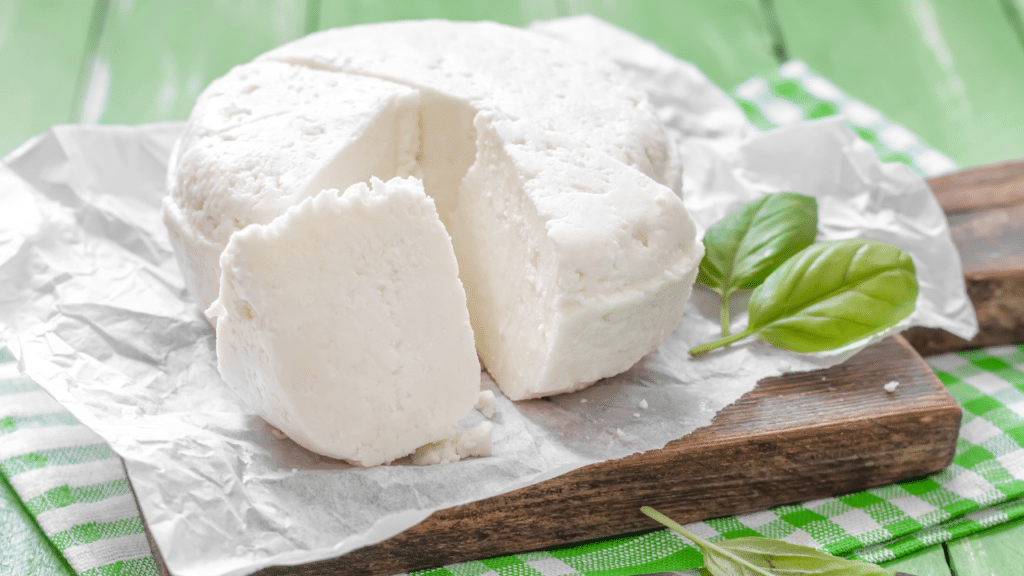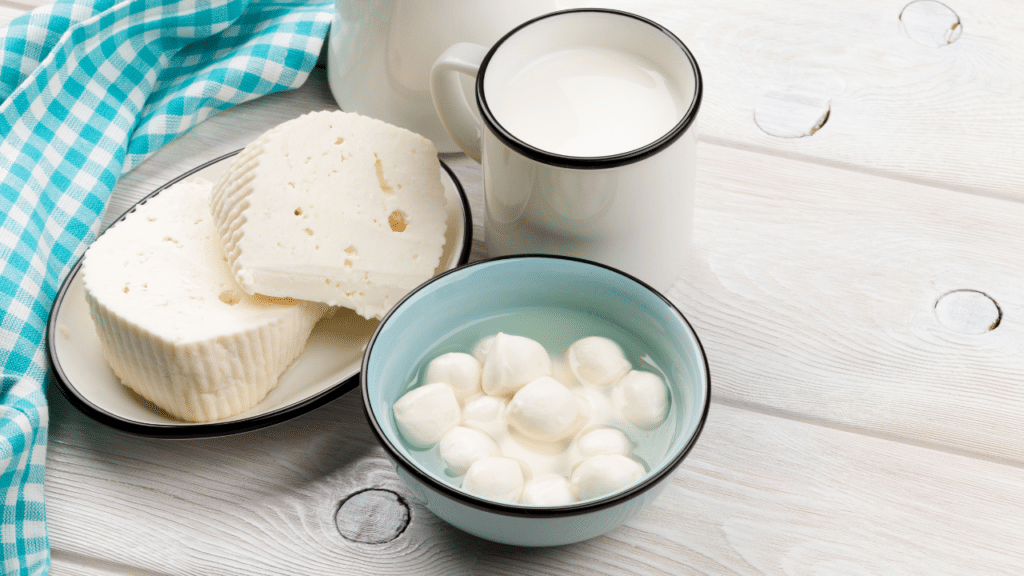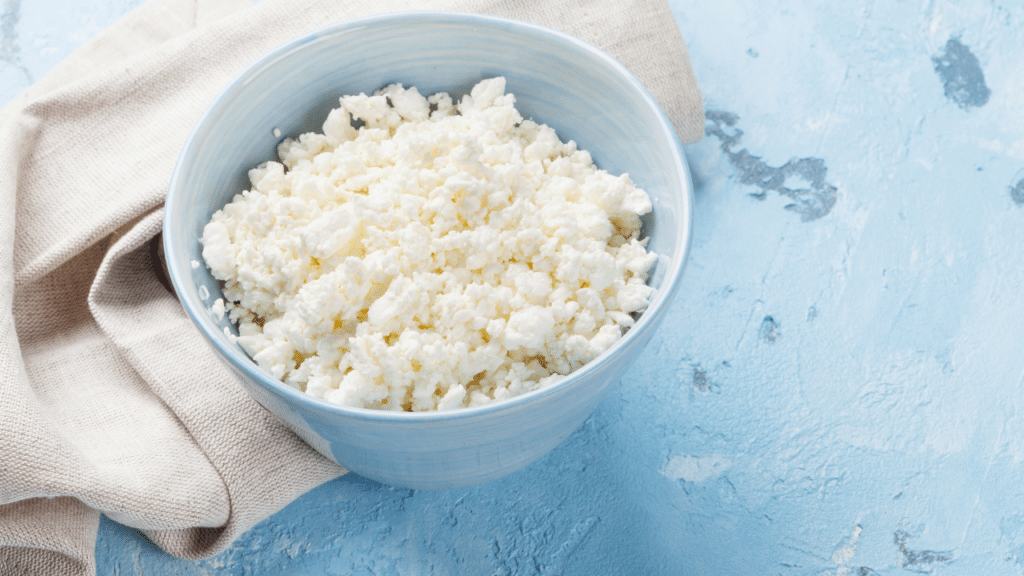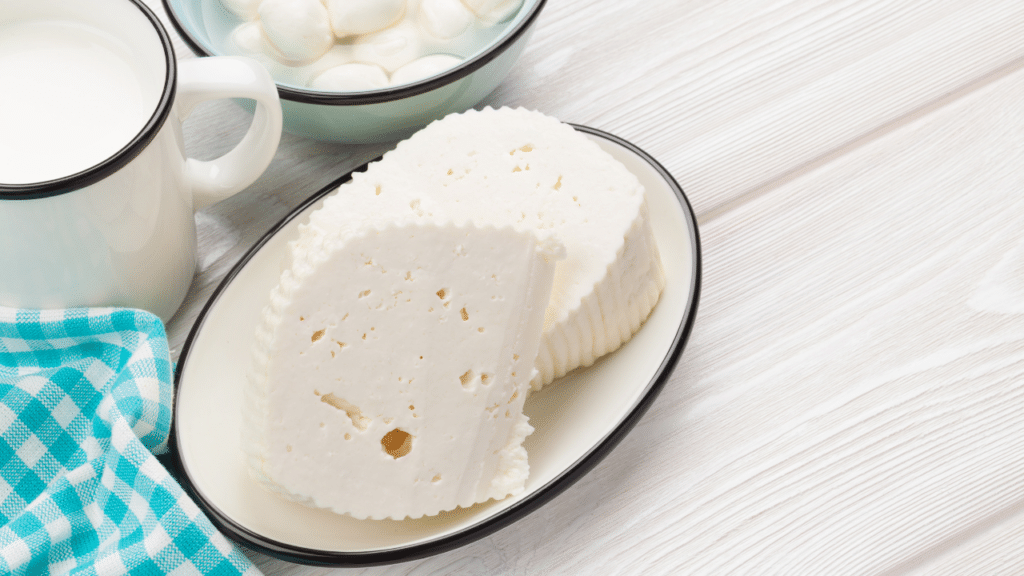Cheese curds are often illegal because of pasteurization laws. For safety reasons, many countries require cheese from pasteurized milk. Cheese curds are a beloved snack known for their fresh and squeaky texture. These small chunks of cheese are made from raw milk, which has not undergone pasteurization to kill harmful bacteria. In places like the United States, federal law mandates that if a cheese, including curds, is made from unpasteurized milk, it must be aged for at least 60 days before being sold.
This ageing process is believed to naturally eliminate potential pathogens, making the cheese safer for consumption. However, since cheese curds are fresh products intended to be consumed shortly after production, the ageing rule renders them illegal if made from raw milk. Consequently, cheese curds that don’t meet these safety standards are outlawed to protect public health despite the frustration it may cause to cheese enthusiasts.
Also Read: Why is ricotta cheese hard to find? Scarcity Unveiled!

Contents
- 1 Why Are Cheese Curds Illegal?
- 2 Are cheese curds banned in the US?
- 3 Are cheese curds safe to eat?
- 4 What is the purpose of cheese curds?
- 5 Is cheese curds spoiled milk?
- 6 Do cheese curds taste like?
- 7 Where to buy cheese curds?
- 8 Why are cheese curds squeaky?
- 9 Where did cheese curds originate?
- 10 Faq
- 11 Conclusion
Why Are Cheese Curds Illegal?
From various sources, we have found out that Cheese Kids is illegal. So in this article today, we will know Why Cheese is illegal and details about it. So let’s find out:
1. Regulatory Compliance
In some regions, specific regulations may govern the production and sale of dairy products, including cheese curds. Non-compliance with these regulations could result in the product being deemed illegal.
2. Quality Standards
Authorities often enforce quality standards to ensure that dairy products meet certain criteria for safety and hygiene. Cheese curds may be prohibited from sale or consumption if they fail to meet these standards.
3. Raw Milk Concerns
Some areas have restrictions or bans on using raw milk in dairy products due to potential health risks associated with unpasteurized milk. If cheese curds are made with raw milk, they could be subject to legal restrictions.
4. Microbial Contamination
Cheese curds, like other dairy products, are susceptible to microbial contamination. If there are concerns about harmful bacteria or pathogens, authorities may restrict the production and sale of such products.
5. Lack of Inspection
Illegal cheese curds could result from a lack of proper inspection by relevant authorities. Without adequate oversight, there is a risk that the product may not meet safety and quality standards.
6. Unlicensed Production
Cheese curds may be considered illegal if produced without the necessary licenses or permits. Proper licensing ensures that producers adhere to established guidelines and practices.
7. Import Restrictions
In some cases, restrictions on importing dairy products may contribute to the perception that cheese curds are illegal. Trade agreements and import regulations can impact the availability of certain food products.
8. Cultural or Religious Considerations
Cultural or religious factors may influence food regulations in specific regions or communities. Certain ingredients or production methods associated with cheese curds might conflict with local customs, leading to legal restrictions.
9. The Legal Limitations
Cheese curds fall under stringent food safety regulations due to potential health risks associated with raw or unpasteurized dairy products. Legal restrictions on cheese curds are particularly tight in the United States, where the FDA mandates that all raw milk cheeses – including curds – must be aged for 60 days to reduce the threat of foodborne illnesses like listeriosis or E. coli. This ageing process diminishes fresh cheese curds’ distinct texture and flavour, so they are often illegal in their freshest form.
10. Health And Safety Concerns
Cheese curds may pose potential health risks from how they are produced and handled. The lack of pasteurization can allow for harmful bacteria, such as Salmonella, E. coli, and Listeria, to proliferate. These pathogens are associated with food-borne illnesses that can be particularly dangerous for certain groups, including pregnant women, young children, the elderly, and individuals with weakened immune systems.
Strict regulations govern cheese production to ensure consumer safety. Cheese curds often fall into a regulatory grey area due to their freshness and shorter shelf life. As a result, many countries require pasteurization of dairy products, limiting the legality of selling traditional raw milk cheese curds.
Also Read: Cream Cheese Vs Buttercream Frosting: Which Comes Out on Top?

Are cheese curds banned in the US?
It’s important to clarify that raw or unpasteurized milk is not universally banned in the United States. While the sale of raw milk is prohibited in some states, there are states where it is legal to sell and purchase raw milk. Regulations regarding raw milk vary by state, and some states have specific requirements for its sale, such as labelling and testing.
As for cheese curds, they are indeed legal in the United States. The process you described involving the addition of starter cultures and rennet to curdle the milk is a standard procedure in cheese making, and cheese curds are a common byproduct of this process. Cheese curds can be produced from pasteurized and raw milk, depending on the specific production methods and local regulations.
It’s always advisable to check local and state regulations regarding dairy products for the most accurate and up-to-date information, as these regulations can vary.
Are cheese curds safe to eat?
Yes, cheese curds are safe to eat. Cheese curds are a dairy product made by curdling milk with starter cultures and enzymes, usually rennet. The curds are then separated from the whey and can be enjoyed in their fresh, moist form or further processed into various types of cheese.
It’s important to note that the safety of cheese curds, like any other food product, depends on factors such as the quality of the milk used, the cleanliness of the production process, and proper storage conditions.
What is the purpose of cheese curds?
Cheese curds serve various purposes in dairy products and culinary delights. Here are several purposes and uses for cheese curds:
- Cheese Production: Cheese curds are an intermediate stage in the cheese-making process. When milk is coagulated and separated into solid curds and liquid whey, these curds can be further processed to create different types of cheese. The specific treatment of the curds, such as pressing, ageing, or adding additional cultures, determines the final cheese product.
- Fresh Snack: In regions like Wisconsin in the United States and parts of Canada, fresh cheese curds are popular as a snack. When bitten into, these curds are enjoyed in their natural, unaged state, offering a mild flavour and a characteristic squeaky texture.
- Poutine: Cheese curds are a key ingredient in the famous Canadian dish, poutine. Poutine typically consists of french fries topped with cheese curds and smothered in hot gravy, creating a delicious and hearty comfort food.
- Ingredient in Recipes: Cheese curds can be incorporated into various recipes to add texture and flavour. They can be melted over dishes like nachos, used as a filling for omelettes or sandwiches, or added to salads for a unique twist.
- Culinary Innovation: Chefs and home cooks often experiment with cheese curds to create new and innovative dishes. Their versatility allows for a range of culinary applications beyond traditional recipes.
- Educational Tool: Cheese curds also serve an educational purpose in helping people understand the cheese-making process. Exploring the transformation of milk into curds and then into cheese provides insights into the science and artistry of cheese production.

Also Read: Gorgonzola vs Blue Cheese: Exploring the Distinctive Characteristics
Is cheese curds spoiled milk?
No, cheese curds are not spoiled milk. Cheese curds are a stage in the cheese-making process and are a result of coagulating milk to separate it into solid curds and liquid whey. The coagulation is typically achieved by adding an enzyme called rennet and/or bacterial cultures to the milk. This process is a controlled and intentional step in cheese production.
Cheese curds, when produced under sanitary conditions and proper cheese-making practices, are not spoiled. They are a fresh dairy product that can be consumed in their natural state or further processed into various types of cheese. It’s essential to distinguish between the intentional coagulation of milk in cheese-making and the unintended spoilage of milk due to bacterial or fungal contamination.
Do cheese curds taste like?
Cheese curds have a distinct taste and texture, and their flavor can vary depending on factors such as the type of cheese, the milk used, and any additional seasonings or cultures. Here are some general characteristics of the taste of cheese curds:
- Mild and Fresh: In their natural state, cheese curds have a mild and fresh flavor. They often have a subtle taste of the milk from which they are made, and the curds themselves are not aged like some other types of cheese.
- Creamy and Slightly Tangy: The texture of cheese curds is unique, with a combination of creaminess and a slight tanginess. When you bite into a cheese curd, you may notice a moist interior, and they are known for their characteristic “squeak” when bitten into, especially when they are very fresh.
- Versatile Flavor: Cheese curds can be made from different types of milk, such as cow’s milk, goat’s milk, or sheep’s milk, and they can be used to produce a variety of cheeses. The specific type of cheese curd will influence its flavor profile.
- Adaptable to Seasonings: While plain cheese curds are delicious on their own, they can also be flavored with herbs, spices, or other seasonings during the cheese-making process. This adds an extra layer of complexity to their taste.
- Dependent on Cheese Type: If the cheese curds are made from a specific type of cheese, such as cheddar, they may inherit some of the characteristics of that cheese. For example, cheddar cheese curds might have a richer and more savory flavor compared to curds from a milder cheese.
Overall, cheese curds are appreciated for their unique combination of mildness, freshness, and a satisfying texture. Enjoying them in their natural state or incorporating them into various dishes allows you to experience their versatile and delightful taste.
Where to buy cheese curds?
You can find cheese curds at various places, depending on your location. Here are some common places where you might find cheese curds:
- Local Dairy or Cheese Shops: Specialty dairy stores or shops that focus on cheese and dairy products often carry fresh cheese curds. These establishments may offer a variety of flavors and types of curds.
- Farmers’ Markets: Many farmers’ markets feature local dairy vendors who sell fresh cheese curds. This is a great way to support local producers and often allows you to sample different varieties.
- Supermarkets: Some well-stocked supermarkets, particularly those in regions with a strong dairy culture, may carry cheese curds. Look in the dairy or cheese section of the store.
- Cheese Factories: If you live in an area with cheese production, consider visiting a local cheese factory. Some factories sell their products directly to the public, including fresh cheese curds.
- Online Retailers: There are also online retailers that specialize in cheese and dairy products. You can find various types and flavors of cheese curds from these sources, and they can be delivered to your doorstep.
- Local Creameries: Creameries that produce cheese may have their own shops or sell their products to local retailers. Check if there are any creameries or cheese producers in your area.
- Specialty Food Stores: Specialty food stores that focus on high-quality and artisanal products may carry cheese curds. Check the dairy or cheese section of these stores.
- Cooperatives: Some dairy cooperatives or community-supported agriculture (CSA) programs offer cheese curds as part of their product selection. Check with local cooperatives or CSAs in your area.
Why are cheese curds squeaky?
Cheese curds, with their distinctive squeaky texture, are a culinary delight appreciated by many cheese enthusiasts. This unique characteristic is a result of the interplay between moisture content, protein structure, and freshness. When cheese curds are very fresh, their high moisture content creates a cushion between the protein strands, contributing to the squeaky sensation when bitten into. The proteins in the curds form a matrix or network, and as this matrix breaks apart during chewing, it produces the audible squeak.
This phenomenon is most pronounced when the curds are at their freshest, and it tends to diminish over time as the cheese ages or undergoes further processing. Additionally, the temperature at which the curds are served can influence their texture, with colder temperatures often enhancing the squeak. Whether enjoyed on their own or incorporated into various dishes, the squeakiness of cheese curds adds a playful and distinctive element to the overall culinary experience.

Also Read: Spicy Spagetti Recipe
Where did cheese curds originate?
The exact origin of cheese curds is not precisely documented, as the production of curds and cheese dates back thousands of years. However, cheese curds are commonly associated with regions that have a strong dairy tradition, particularly in Europe and North America.
In North America, the association with cheese curds is particularly strong in Wisconsin, United States, and Quebec, Canada. Wisconsin is known for its cheese production, and cheese curds, often enjoyed fresh, have become a popular snack in the state. In Quebec, cheese curds play a central role in the iconic Canadian dish called poutine.
In Europe, where cheese-making traditions have deep historical roots, various regions have likely been producing cheese curds for centuries. The methods and traditions for making cheese, including curds, have evolved over time and vary across different cultures and communities.
Overall, the concept of cheese curds is deeply intertwined with the broader history of cheese-making, which spans across many regions and cultures throughout history. The specific origins of cheese curds are challenging to pinpoint, but they have become a beloved and distinctive element in the culinary traditions of various dairy-producing regions.
Faq
Q. Why Are Cheese Curds Illegal?
Cheese curds can be illegal due to strict food safety regulations that limit the sale of unpasteurized dairy products, as cheese curds are often made from raw milk.
Q. What Makes Cheese Curds Different?
Cheese curds are a fresh byproduct of cheddar cheese making, known for their distinct texture and flavor, often described as squeaky when fresh.
Q. Can You Buy Cheese Curds Legally?
Purchasing cheese curds legally depends on local food laws; pasteurized curds are widely available, whereas raw milk curds may be restricted.
Q. Are Cheese Curds Healthy?
Cheese curds provide protein and calcium but are high in fat and sodium, making them a treat to consume in moderation.
Q. How To Store Cheese Curds Properly?
Store cheese curds in the refrigerator and consume them quickly to enjoy their freshness and maintain their quality and safety.
Q. What Recipes Use Cheese Curds?
Cheese curds are popular in poutine, salads, and fried snacks, adding a unique texture and flavour to various dishes.
Q. Why Are Cheese Curds Squeaky?
Cheese curds squeak due to air trapped inside the elastic protein strands, which is a sign of freshness when bitten.
Q. Where Are Cheese Curds Commonly Made?
Cheese curds are commonly made in dairy regions like Wisconsin, Quebec, and parts of Europe, where cheese-making traditions thrive.
Conclusion
Navigating the complex landscape of food regulations is essential, especially with cheese curds. This post aimed to unravel the mystery behind their restricted status. We hope you’re now better informed on the legal intricacies these tasty morsels face. Stay curious and continue exploring the peculiarities of food laws to understand what’s on your plate.
Keep in mind, awareness is key for the conscious consumer.